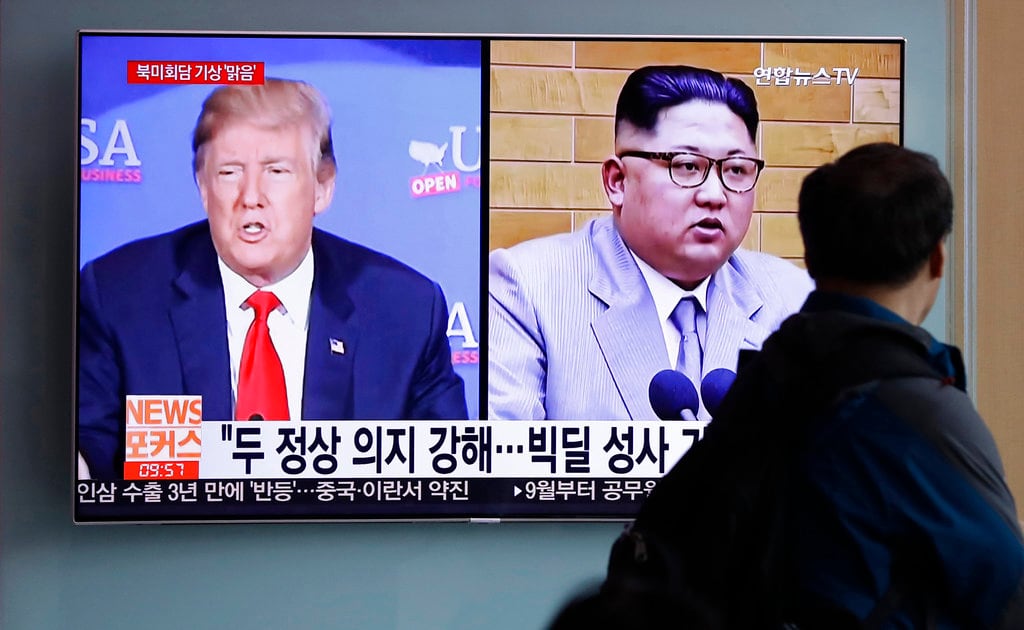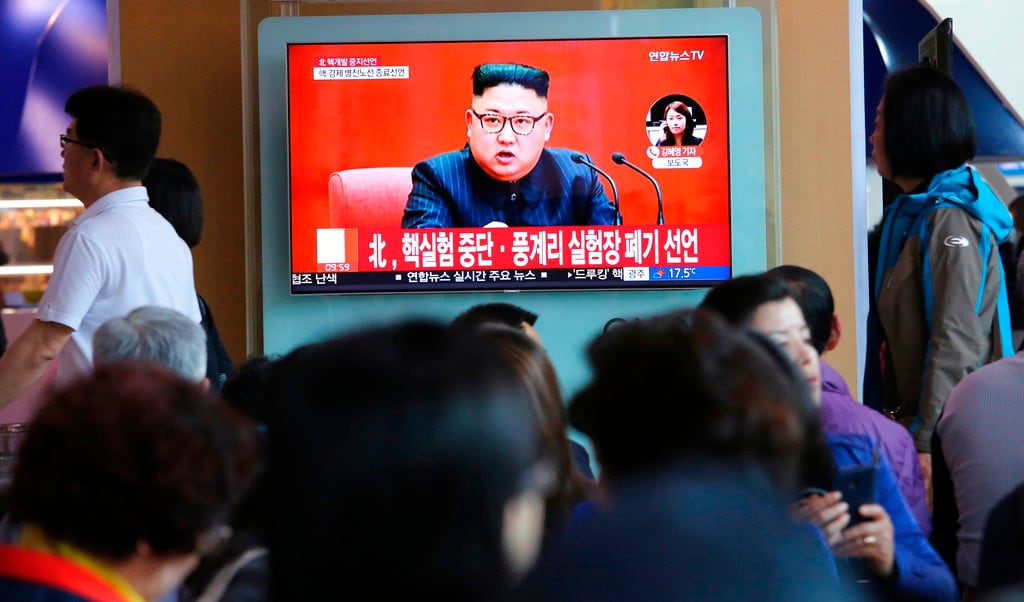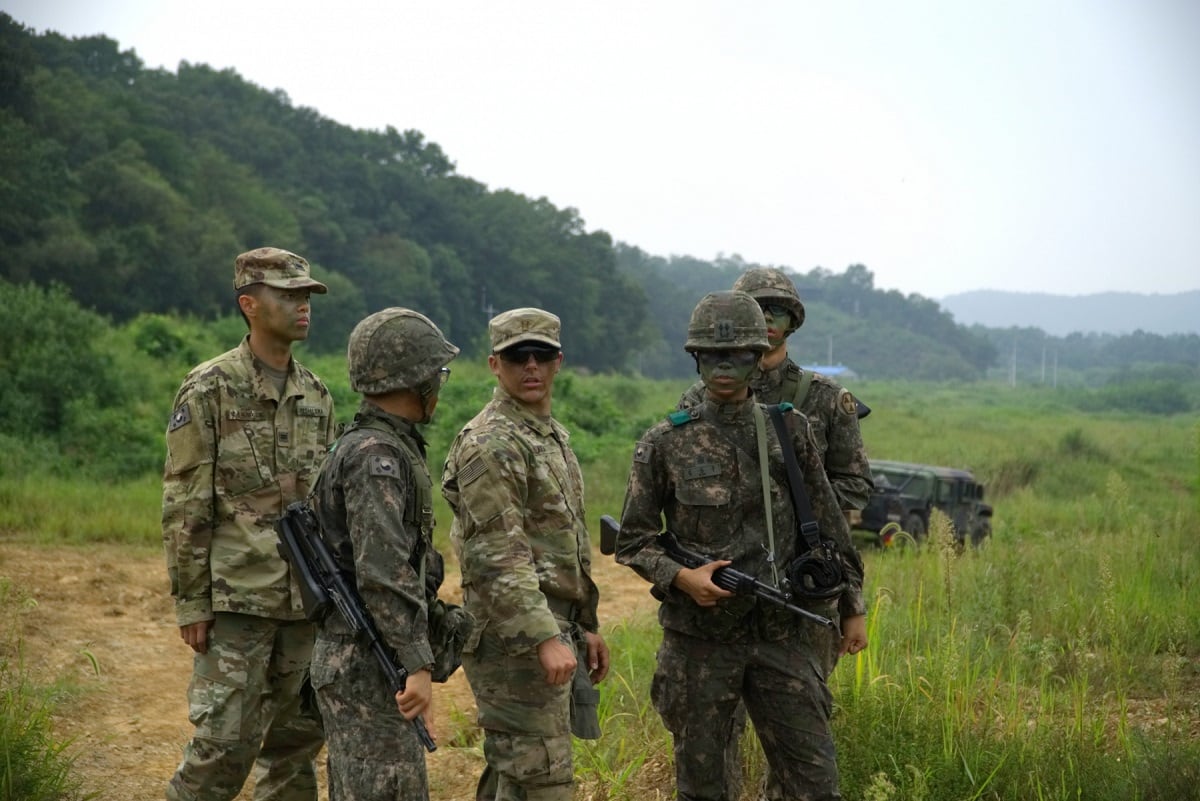WASHINGTON — The United States aspires to have North Korea as a “close partner” and not an enemy, Secretary of State Mike Pompeo said, noting that the U.S. has often in history become good friends with former adversaries.
Pompeo said he had told North Korean leader Kim Jong Un of that hope during his brief visit to Pyongyang earlier this week, during which he finalized details of the June 12 summit between Kim and President Donald Trump and secured the release of three Americans imprisoned in the country.
He said his talks with Kim on Wednesday had been “warm,” ″constructive” and “good” and that he made clear that if North Korea gets rid of its nuclear weapons in a permanent and verifiable way, the U.S. is willing to help the impoverished nation boost its economy and living stands to levels like those in prosperous South Korea.
RELATED

“We had good conversations about the histories of our two nations, the challenges that we have had between us,” Pompeo told reporters at a news conference Friday with South Korea’s visiting foreign minister, Kang Kyung-wha. “We talked about the fact that America has often in history had adversaries who we are now close partners with and our hope that we could achieve the same with respect to North Korea.”
He did not mention other adversaries by name, but Pompeo and others have often noted that the U.S. played a major role in rebuilding Japan and the European axis powers in the wake of World War II. With U.S. help, those countries recovered from the devastation of conflict.
“If North Korea takes bold action to quickly denuclearize, the United States is prepared to work with North Korea to achieve prosperity on the par with our South Korean friends,” he said.
RELATED

Kang praised the upcoming meeting between Trump and Kim in Singapore as an “historic” opportunity, but added a few notes of skepticism as well. Amid concerns that North Korea will demand the U.S. withdraw its troops from neighboring South Korea, Kang emphasized that the U.S. military presence there must be “a matter for the U.S.-ROK alliance first and foremost,” using an acronym for South Korea’s official name, the Republic of Korea.
She said the U.S. troop presence in the South for the past 65 years has played a “crucial role for deterrence,” peace and stability on the Korean Peninsula. Therefore, she said, any change in the size of the U.S. forces in South Korea should not be on the table at the summit.
“The next few weeks will be critical, requiring air-tight coordination between our two countries,” Kang said, noting that South Korean President Moon Jae-in would be in Washington to see Trump later this month.
RELATED

Since Trump announced plans to hold a summit with Kim, questions have been raised continually about whether the two leaders have the same objective in mind when they speak about “denuclearization.” To the U.S., that means the North giving up the nuclear weapons it has already built. But North Korea has said it’s willing to talk now because it’s already succeeded in becoming a nuclear-armed state, fueling skepticism that the North would truly be willing to give those weapons up.
Pompeo said there would need to be “complete” and “verifiable” denuclearization that would remove North Korea as a threat to the South, the United States and the rest of the world. He said a major inspection and monitoring regime would be required to ensure the North’s compliance.
“I think there is complete agreement about what the ultimate objectives are,” Pompeo said, though he declined to offer more detail.




